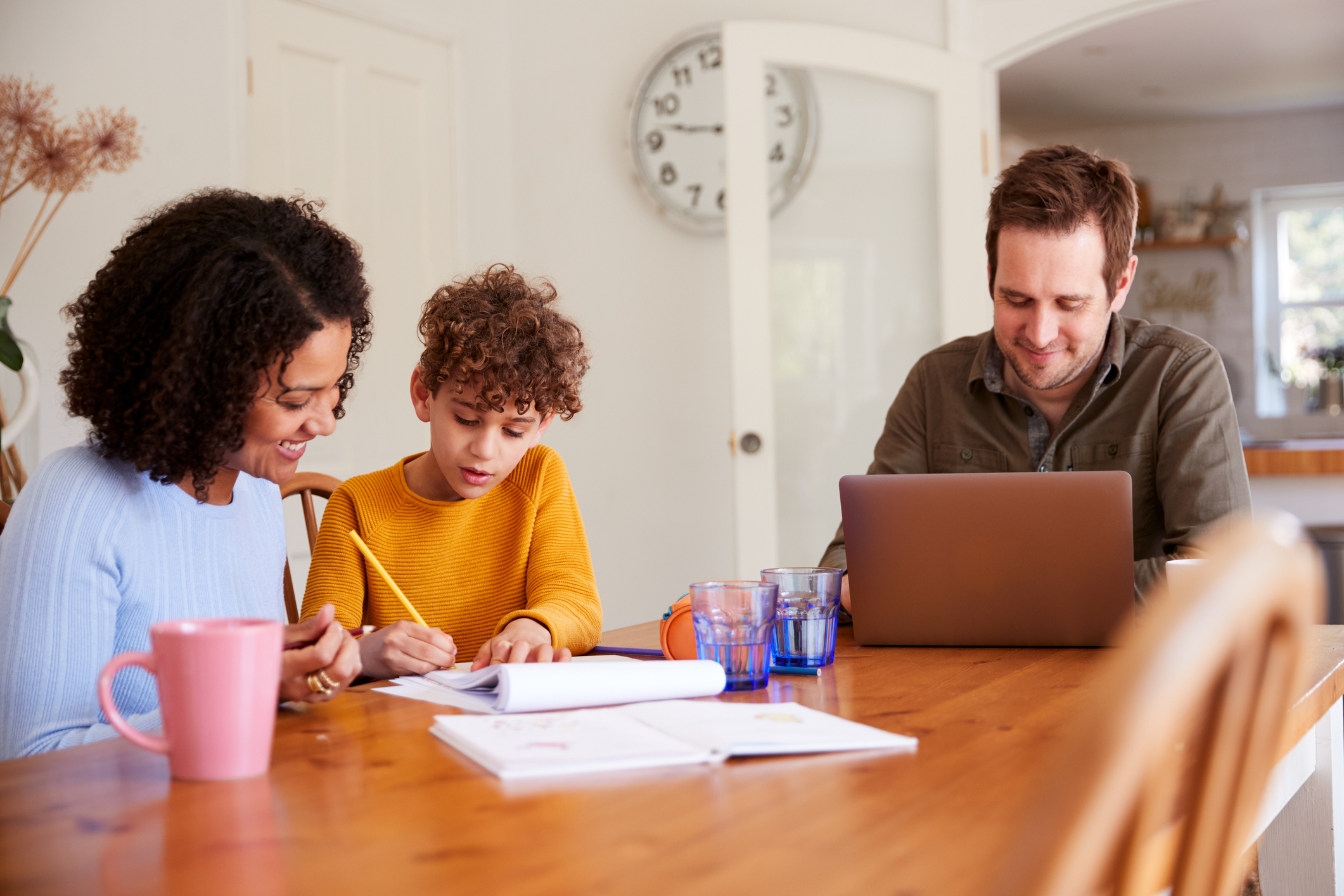Managing Children at Home in The ‘School Free’ World

As part of our special webinar series helping navigate the realities of the Coronavirus pandemic and its effect on our everyday lives, we featured a session on Managing Children at home in the school free world. Now we know that it’s not exactly school free – your children may have been given packs or may even be receiving virtual lessons or a combination of both, but one things for sure – if they’re doing this at home while you’re trying to work, life gets pretty complicated, pretty quickly.
In the latest of our follow ups to this incredibly popular series, here are your own gems of advice from the front line to each other, from fellow parents all going through the similar juggling challenges – and let’s face it, if your challenges are anything like mine, we all need all the help we can get!
Organisation
1. Plan the day ahead together – if you involve your children in organising their day, they may be more likely to stick to it.
2. Create bitesize timeslots to focus on work and family or if it works better, chunk up your day into 2-3 hour stretches for work and schedule the childcare in between
3. Maintain a sense of structure for the day, where possible give your children a choice as this gives them a sense of control and helps them feel valued and may also help reduce children’s anxiety.
4. Try to keep to a school day routine including set breaks, contact time with friends and exercise.
5. Try to maintain a relaxed and flexible approach but set a broad plan of activities and boundaries.
6. Be honest with colleagues about your challenges at home
7. If you’re an early bird, you may want to get up early to put in an hour or so before the children wake up (just make sure that you then finish early too!)
8. If you have a partner at home, take it in turns to schedule in uninterrupted work time and ‘on-call’ times for the children. Consider late and early ‘shifts’ if that’s possible with jobs.
Food Strategy
9. Make time for your lunch break, switch off work and focus on the children.
10. Have a plate of healthy snacks out for little people to help themselves to.
Learning
11. Mix up academic learning with other learning – such as cooking, music, crafts or creative arts.
12. Fit some exercise in – whether that’s PE with Joe Wicks or something else, it’s important for them (and you) to burn off energy and it will help them sleep better.
13. If you’re lucky enough to have willing and able grandparents – ask them to help virtually.My dad has downloaded zoom and my daughter shares her online work page with him so that he can help her and my mum listens to her read. It gives them some quality time together too.
14. Create a list of activities for the day and try to include fun activities they enjoy.
15. Try to find similar activities all ages can enjoy at the same time, e.g. reading / painting / playdough play the games we used to play in the 60s - noughts & crosses/hopscotch/sing. Do your best to introduce a few educational games.
16. Depending on how old your children are and how they get on together, you may be able to assign roles for children, for example, the eldest being a Teaching Assistant and middle child being the teachers’ helper
Perspective and Balance
17. I am trying to not put any pressure on myself. Any school work achieved is a bonus. Acknowledging that this is happening to children/families globally, so we ought not to worry about competing and having a perfect system. Adapt it every day if necessary until you work out what helps. Recognise there won't be a perfect scenario.
18. Take one day at a time and plan your day the night before but don't take it personally if something doesn't go to plan and just go with the flow.
19. Lower your expectations, accept that you can only try your best and that you can take a horse to water but …, so don't worry about it, as long as we are healthy mentally and physically that is priority – balance is all.
20. Control the controllables and forget the rest.
21. Relax, have patience and be kind to yourself and your children!
Stay safe & healthy!





